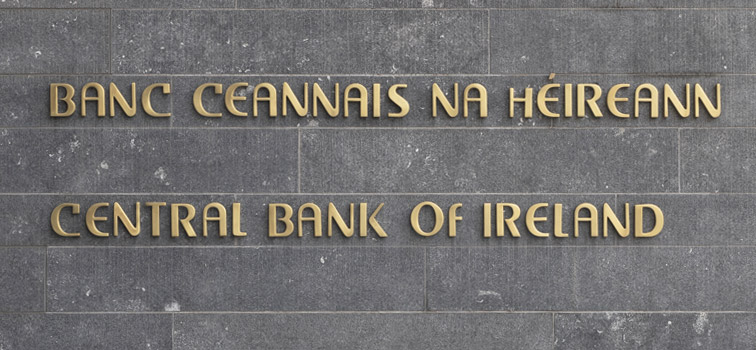Webinar: “Enterprise financing and investment in Ireland – tackling the challenges of COVID-19, digitalisation and climate change”
19 April 2021
Press Release

The Central Bank of Ireland, Economic & Social Research Institute (ESRI) and European Investment Bank (EIB) have today (19 April 2021) jointly hosted a webinar entitled “Enterprise financing and investment in Ireland - tackling the challenges of Covid-19, digitalisation and climate change.” The webinar was held in partnership with the Kemmy Business School, University of Limerick.
Governor Gabriel Makhlouf opened the webinar by assessing the impact the COVID-19 pandemic has had on Small and Medium Enterprises (SMEs). The Governor said “Policymakers have acted to support vulnerable businesses and, thankfully, the pandemic has not yet been characterised by widespread company failures, owing to the unprecedented level of direct fiscal support and creditor forbearance that is in the system.” He added that, given the important role this sector plays in our economy and as an employer “this support has been critical to avoid widespread scarring in the Irish economy. The viability and survival prospects of many affected firms remains highly uncertain and is likely to depend on a range of future policy choices. These choices will be difficult, and will have profound implications for our economy.”
Mr Makhlouf acknowledged that the shock to SME revenues from the pandemic was severe in 2020. He referenced research also published today by the Central Bank and ESRI that shows that, while the hospitality sector has experienced the most severe crisis, the revenue shock has also been significant across all other sectors. The Governor said “this suggests that the COVID-19 pandemic has had an effect in all pockets of the SME sector. The research also sheds some new light on how effectively SMEs can reduce their costs in the face of falls in revenue showing that that for every euro lost, SMEs have on average reduced costs by 37 cents … These figures suggest that, while companies have indeed managed to adjust to the realities of the pandemic, this adjustment for many reasons has not been enough to avoid companies experiencing losses.”
However, the Governor cautioned that “while policy choices have led to an avoidance of widespread insolvency up to now, it is an unfortunate reality that the effects of the pandemic on SME balance sheets, combined with structural changes that have either been created or exacerbated by it, mean that some SMEs will be unviable.” He said “It would be a mistake to continue with protection and forbearance in perpetuity, just as it would be wrong to allow all companies making losses currently to fail.”
The Minister for Finance, Paschal Donohoe, delivered the keynote address.
The webinar was closed by Deputy Governor Sharon Donnery who said that the one of the most important policy goals of the Central Bank is economic and financial resilience. She said that “the resilience of the indigenous business sector is critical to the overall functioning of the labour market and the economy, given its importance in employment, output and tax revenues.” Ms Donnery noted that “a large, widespread and rapid increase in loan loss provisions would have the potential to lead to pro-cyclical tightening of credit supply from banks, curtailing an economic recovery”. She added that “the build-up of resilience among banks and borrowers since the last crisis, and the policy response since March 2020 has undoubtedly helped to avoid the kind of harmful credit supply tightening that characterised the previous global financial crisis.”
Ms Donnery concluded that “Given the duration of closures due to public health restrictions, and the uncertainty levels that prevail around future demand in some sectors, it would seem that now is not the time to begin assessing companies’ survival prospects based on pre-pandemic norms. The scale of potential closures would likely cause an unwarranted degree of damage to the labour market and the economy, including the risk of scarring which would hamper our economy over the long run.” Looking forward, Ms Donnery said it will “be imperative our systems function smoothly so that restructuring of viable businesses can occur, and they can contribute to employment and growth of the economy”, in addition that “impediments to liquidation are eased so that liquidation of the least viable businesses is also possible, thereby giving business people and entrepreneurs the opportunity of a fresh start”.
Notes
Further information on the webinar is available on theCentral
Bank’s website.
The Central Bank also published a paper by Janez Kren (ESRI), Martin Lawless (ESRI), Fergal McCann (Central Bank of Ireland), John McQuinn (Central Bank of Ireland) and Conor O’Toole (ESRI) entitled “New Survey Evidence on COVID-19 and Irish SMEs: Measuring the Impact and Policy Response”. The authors use new survey data on the Irish SME population to trace out the impact of the pandemic on revenues, firms’ capacity to adjust their cost base and their usage of policy supports.
The full library of Research Technical Papers is available on the Central Bank’s website.